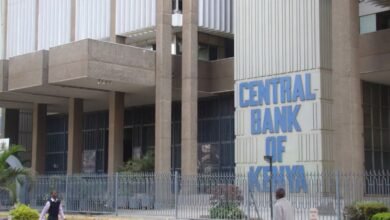
A report by World bank has said that global wealth has grown overall, but at the expense of future prosperity that is aggravated by inequalities.
The report dubbed, The Changing Wealth of Nations 2021, has warned that many nations are on an “unsustainable development path” and focusing too heavily on short-term gains putting their economies on an unsustainable development path. While indicators such as Gross Domestic Product (GDP) are traditionally used to measure economic growth, the report argues for the importance of considering natural, human, and produced capital to understand whether growth is sustainable.
World Bank Managing Director for Development Policy and Partnerships, Mari Pangestu said that it was important that renewable natural and human capital be given same importance as traditional sources of economic growth. “It is essential that renewable natural capital and human capital are given the same importance as more traditional sources of economic growth, so that policymakers take steps to enable long-term prosperity.” He emphasized the need for a deeper understanding of the sustainability of wealth as crucial to a green, resilient and inclusive future.
Although the long-lasting effects of the COVID-19 pandemic are still unknown, low-income countries are likely to experience the most severe impacts, with a projected loss of 14% of total human capital. Human capital is additionally constrained by gender gaps across all regions and income groups, with little improvement since 1995.
The bank’s calculations to measure wealth go beyond traditional capital assets by including natural and human assets ranging from social capital, such as institutions, to biodiversity. “In countries where today’s GDP (gross domestic product) is achieved by consuming or degrading assets over time, for example overfishing or soil degradation, total wealth is declining. This can happen even as GDP rises, but it undermines future prosperity,” The report stated.
The report further said that across low and middle-income countries, forest wealth is shrinking rapidly, by about 8% on a per capita basis and the value of fisheries globally fell 83%. For low-income nations, renewable natural capital accounts for 23% of their wealth and is crucial for growth over the longer term. Countries that heavily dependent on fossil fuel wealth were found to have lower shares of wealth from human capital, despite their high-income levels, with human capital only comprising 34% of their wealth.
Thus, the report recommends that governments focus on long-term goals and “correct market failures” on investments. It said governments should consider citizens’ per capita lifetime earnings, as well as factors such as pollution, which cause millions of premature deaths. It further recommends investing in education, health, and nature, to prevent unsustainable depletion, and manage future risks. Recommendations also include policy and pricing measures that help reflect the social value of assets and to steer private investment toward better outcomes for all. This may include actions like repurposing fisheries subsidies, and taking action to price carbon and promote renewable energy assets.
The Changing Wealth of Nations 2021 report tracked the wealth of 146 countries between 1995 and 2018 by measuring the economic value of renewable natural capital such as forests, cropland, and ocean resources, nonrenewable natural capital such as minerals and fossil fuel, human capital, buildings and infrastructure, and net foreign assets. The report for the first-time accounts for blue economy in the form of mangroves and ocean fisheries.





